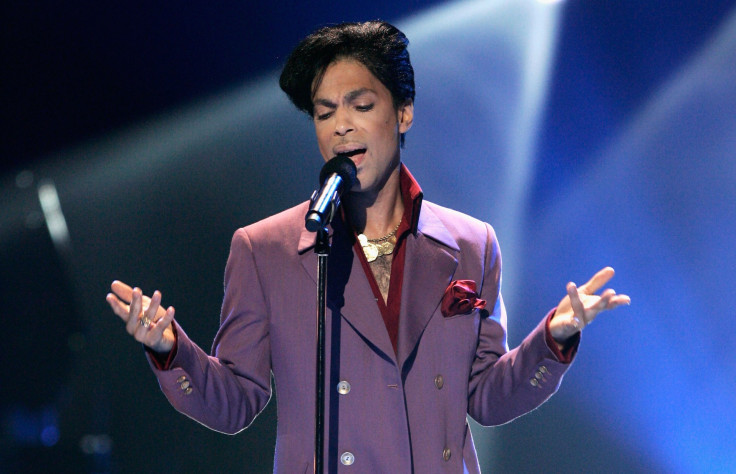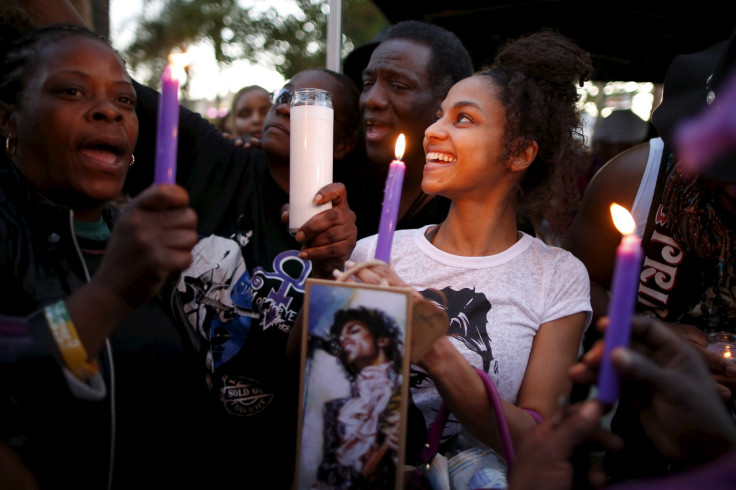How Did Prince Die? Opioid Overdose Statistics Show Drug Use Is A Major Crisis In The US

UPDATED: 3 p.m. EDT — The drug overdose that killed music superstar Prince was caused by fentanyl, the strongest opioid that can be prescribed, local news outlet KSTP reported. The Midwest Medical Examiner's Office made the announcement Thursday afternoon, concluding Prince's death was an accident. The official autopsy report was also released Thursday.
NEW: Medical Examiner's office releases report showing Prince died of overdose of powerful opioid fentanyl pic.twitter.com/9zKP3jf7Tu
— CBS Evening News (@CBSEveningNews) June 2, 2016
Prince reportedly died after self-administering the drug, which is "more potent than morphine," according to the National Institute on Drug Abuse.
Original story:
Music icon Prince died from an opioid overdose April 21 at his Minneapolis-area mansion, the Associated Press reported Thursday. His cause of death underscores a growing drug overdose crisis across the United States that has seen dozens of Americans die each day.
Investigators are determining whether Prince, 57, was obtaining drugs from a doctor in the weeks before his death. The death of the beloved singer, famous for songs such as “1999” and “Kiss,” sparked tributes and memorials around the world in recent weeks, with fans donning his signature purple and sharing his lyrics.
Opioid use has become a major crisis in U.S. cities. It represents the most common form of drug overdose deaths, which have skyrocketed in recent years as the use of prescription opioids including drugs like oxycodone, hydrocodone, and methadonesold have nearly quadrupled. Since 2000, nearly a half-million people have died from drug overdoses while the rate of overdose deaths involving opioids has increased fourfold since 1999. In all, about 78 Americans die each day from opioid overdoses.
And the problem is getting worse. Drug overdose deaths set a record in 2014, with opioid-related deaths making up more than 60 percent, the Centers for Disease Control and Prevention reported.
“This is affecting everybody — young, old, men, women, children, rural, urban, suburban,” President Barack Obama said during a panel on prescription drug abuse and heroin in March. His administration has announced $1.1 billion in new funding to support drug treatment and overdose prevention.
Prince’s drug problem came as a shock to many of his fans, despite signs before his death he was struggling with health woes. Prince was on a plane with the doctor who may have prescribed him the drugs when it made an emergency landing in Illinois a mere six days before his death. Prince was traveling home from Atlanta from what turned out to be his last concert when the plane made a stop after he was found unconscious.

Prince was being treated for chronic hip and ankle pain after years of shimmying across the stage while performing. His fans and fellow musicians said they had no idea Prince had a possible drug problem.
“Doctors are the new pushers. All of America isn’t strung out on street drugs. They’re strung out on prescribed drugs,” Aerosmith frontman and former American Idol judge Steven Tyler, who has received treatment for drug abuse, told People magazine after Prince’s death. “I’m hoping whoever brought him to the hospital that night will have something to say. ... I hope it’s not drugs. But if it is, this didn’t have to happen. I know how it is being a celebrity and everybody around turns a blind eye. But I was fortunate enough to have someone who said, ‘You’re going to Betty Ford, again.’ ”
Opioids come from the opium poppy and drugs such as morphine and heroin kill 69,000 people across the globe each year, according to the World Health Organization. The psychoactive substances can cause respiratory depression and death, but only 10 percent of people who need opioid dependence treatment get help. Alcohol and sedative medication combined with heroin or meth often result in fatal drug overdoses.
© Copyright IBTimes 2025. All rights reserved.






















